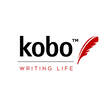|
I. Have you experimented with any of the following hints?
Good suggestions, but if it hasn't come together for you or you'd like to up your game, then check out one or more of the following five books for ideas. II. Five books to help you find time to read. 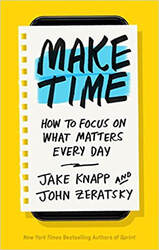 Make Time: How to Focus on What Matters Every Day. Jake Knapp and John Zeratsky, 2018. Audiobook, e-book, hardback, and paperback. Jake Knapp and John Zeratsky identified, tried, and tested eighty-seven tactics to make time in their daily lives for what is most important. The best tactics are the ones that fit into your day. They’re not something you force yourself to do; they’re just something you do. And in most cases, they’ll be things you want to do." The authors aren’t pushy. They suggest. Their writing style is clear, fun, and interspersed with playful black and white drawings. Each tactic is placed into one of four categories:
Many of the tactics are classics: write it down, block your calendar, just say no, exercise, eat well, etc. Their special talent is how to manage the “infinity pools” of the internet age. As self-identified fans of technology—as well as former product designers at organizations like Google and YouTube—they are well-aware of the advantages and disadvantages of the tool. “Look, we love technology. But….Combine the four-plus hours the average [American] person spends on their smart phone with the four-plus hours the average person spends watching television, and distraction is a full-time job.” Their recommendations for creating barriers to distraction are worth your time. Experiment with the tactics and see what works best for you. If you’re interested in a guide for converting the Make Time tactics into long-term habits, check out The Power of Habit by Charles Duhigg. 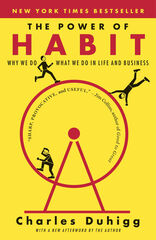 The Power of Habit Charles Duhigg, 2012. Audiobook, e-book, hard cover, and paperback. Award winning business reporter Charles Duhigg dissects how habits form, persist, and change. His helpful and entertaining discussion begins with scientific discoveries about the bare bones of every habit: cue – routine – reward. Yes, even negative habits that you know hurt you have a “reward.” Hence, the first step in changing a habit is identifying it, then discerning what is the cue, what is the routine, and what is the reward. You’ve probably noticed that cues are made even “stickier” by the craving that follows the cue. Think of habits in your life that you changed (or haven’t changed yet). What are two essential ingredients to adding or deleting one of your habits? You’re exactly right if you answered:
Duhigg’s presentation of the difficulty of changing habits, whether on the individual, family, or organizational level, is inspiring to read for its positive message and practical suggestions for change. In short, yes, you can eliminate negative habits and add positive ones. 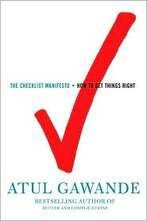 The Checklist Manifesto. Atul Gawande, 2009. Audiobook, audio cd, e-book, hardcover, microfilm, and paperback. Do you use checklists? If not, Atul Gawande’s investigation into and use of checklists might change your mind. How can something as simple as a checklist make the difference between getting something right or wrong? Getting something done so that you can make time for the things you want to do? Dr. Gawande—a distinguished surgeon, writer, and public health leader—takes time to show us. His examples from professions as varied as aviation, construction, and medicine demonstrate that checklists have made life-saving differences. Human memory is fallible. Distractions are rampant. Deadlines, emergencies, and human fatigue are part of life. In short, for the first time in human history, ineptitude is a bigger problem than ignorance. Checklists remind us of the minimum necessary steps and maintain discipline whether you’re working with simple, complex, or complicated situations in your life. 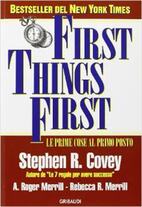 First Things First Stephen R. Covey, A. Roger Merrill, Rebecca R. Merrill, 1990. Audiobook, e-book, hardcover, paperback, and MP3 CD. Covey noticed that many people wanted a more in-depth guide on the third habit: how to make time for the most important things. Consequently, he collaborated with A. Roger Merrill and Rebecca R. Merrill to create a separate book published the following year, 1990, to expand on the topic. The authors challenge you to discern what is most important to you. That challenge requires you to identify:
Indeed, you must know what is first for you before you can put “first things first.” Honesty like that takes time. But Covey, et al, cheer you on as you work through the material. Their recommendation to change from doing more things in less time to doing the most important things is, for many people, a paradigm shift. They encourage you to:
It’s a heady challenge. III. Are your duties and distractions preventing you from reading? “The core challenge of living in the ‘fast new world’ is how to manage excess stimulation.” Keep in mind that you can pick and choose the suggestions that will help you make time for reading. You don’t have to do them all and certainly not all at once.
Start small and see what works for you. ________ Note: Visit the historic Atlas Life Building, 415 South Boston Avenue, Tulsa, Oklahoma, to see the image of Atlas holding a clock on his shoulders. I snapped Atlas's photo during a September 2019 trip to Tulsa.
0 Comments
Your comment will be posted after it is approved.
Leave a Reply. |
AuthorLynne Schall is the author of three novels: Women's Company - The Minerva Girls (2016), Cloud County Persuasion (2018), and Cloud County Harvest (November 2022). She and her family live in Kansas, USA, where she is writing her fourth novel, Book 3 in the Cloud County trilogy. Archives
October 2023
|
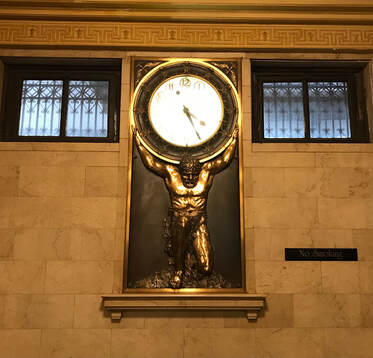
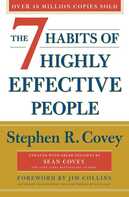
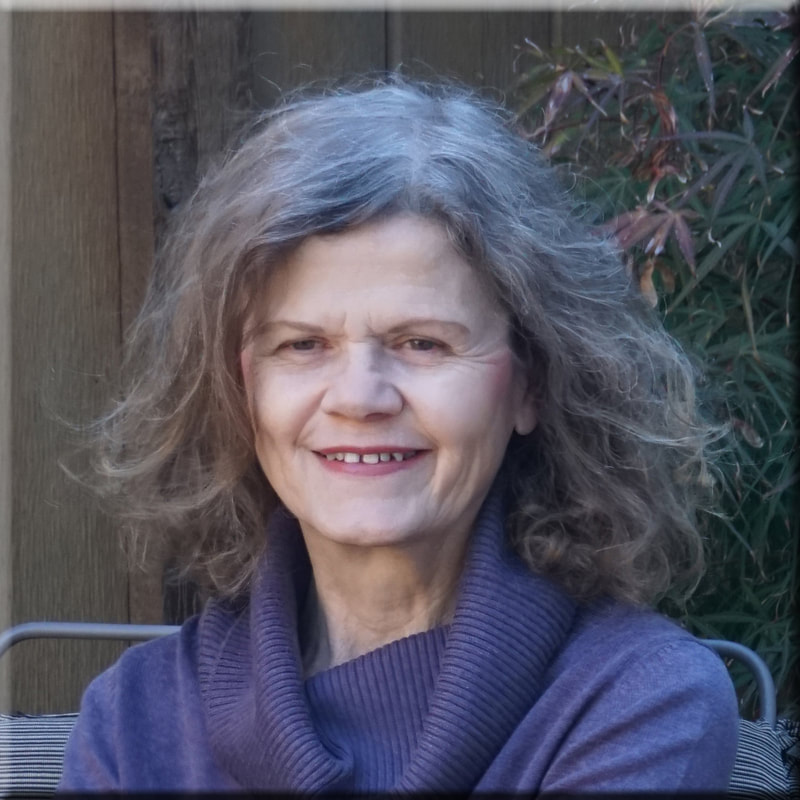
 RSS Feed
RSS Feed
